Florian Wintterlin
@wintterlin.bsky.social
Communication Researcher @University of Muenster
New paper out on trust in science in the International Journal of Public Opinion Research.
🙏 to @nielsmede.bsky.social and @colognaviktoria.bsky.social for initiating the TISP project and to @juliametag.bsky.social for her helpful input throughout the project. Free-access link: shorturl.at/4VBAJ
🙏 to @nielsmede.bsky.social and @colognaviktoria.bsky.social for initiating the TISP project and to @juliametag.bsky.social for her helpful input throughout the project. Free-access link: shorturl.at/4VBAJ
October 15, 2025 at 8:42 AM
New paper out on trust in science in the International Journal of Public Opinion Research.
🙏 to @nielsmede.bsky.social and @colognaviktoria.bsky.social for initiating the TISP project and to @juliametag.bsky.social for her helpful input throughout the project. Free-access link: shorturl.at/4VBAJ
🙏 to @nielsmede.bsky.social and @colognaviktoria.bsky.social for initiating the TISP project and to @juliametag.bsky.social for her helpful input throughout the project. Free-access link: shorturl.at/4VBAJ
First publication of the News Beat Project is now out in Journalism!
If you're interested in geographically defined news beats from an international perspective, you should have a look.
Read it here (open access): doi.org/10.1177/1464...
If you're interested in geographically defined news beats from an international perspective, you should have a look.
Read it here (open access): doi.org/10.1177/1464...
Sage Journals: Discover world-class research
Subscription and open access journals from Sage, the world's leading independent academic publisher.
doi.org
September 8, 2025 at 8:21 AM
First publication of the News Beat Project is now out in Journalism!
If you're interested in geographically defined news beats from an international perspective, you should have a look.
Read it here (open access): doi.org/10.1177/1464...
If you're interested in geographically defined news beats from an international perspective, you should have a look.
Read it here (open access): doi.org/10.1177/1464...
Reposted by Florian Wintterlin
Our Digital News Report 2025 is out!
📊48 markets
🌏Almost 100K respondents
📰Key headline: Audiences lean into video news and influencers, raising misinformation concerns and new dilemmas for publishers
📱Explore now buff.ly/xLP67Tg
🧵Findings in thread #DNR25
📊48 markets
🌏Almost 100K respondents
📰Key headline: Audiences lean into video news and influencers, raising misinformation concerns and new dilemmas for publishers
📱Explore now buff.ly/xLP67Tg
🧵Findings in thread #DNR25
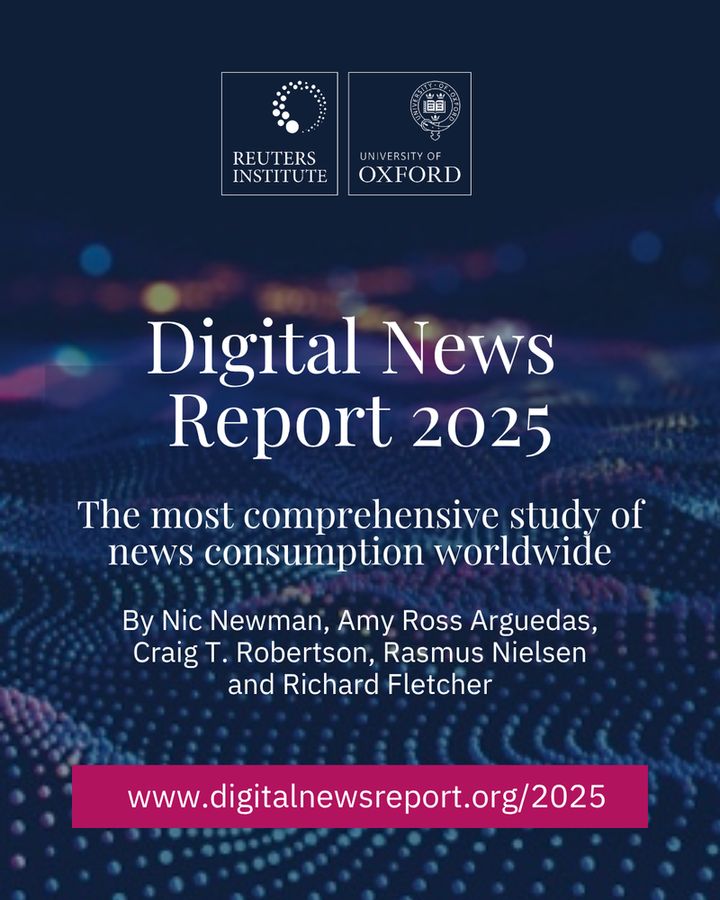
June 17, 2025 at 5:03 AM
Our Digital News Report 2025 is out!
📊48 markets
🌏Almost 100K respondents
📰Key headline: Audiences lean into video news and influencers, raising misinformation concerns and new dilemmas for publishers
📱Explore now buff.ly/xLP67Tg
🧵Findings in thread #DNR25
📊48 markets
🌏Almost 100K respondents
📰Key headline: Audiences lean into video news and influencers, raising misinformation concerns and new dilemmas for publishers
📱Explore now buff.ly/xLP67Tg
🧵Findings in thread #DNR25
Reposted by Florian Wintterlin
New publication out in Social Science Computer Review, with @mikefarjam.bsky.social (lead) and Meike Lohkamp:
“A Practical Guide and Case Study on How to Instruct LLMs for Automated Coding During Content Analysis.”
journals.sagepub.com/doi/10.1177/...
A thread 🧵:
“A Practical Guide and Case Study on How to Instruct LLMs for Automated Coding During Content Analysis.”
journals.sagepub.com/doi/10.1177/...
A thread 🧵:

Sage Journals: Discover world-class research
Subscription and open access journals from Sage, the world's leading independent academic publisher.
journals.sagepub.com
June 23, 2025 at 3:37 AM
New publication out in Social Science Computer Review, with @mikefarjam.bsky.social (lead) and Meike Lohkamp:
“A Practical Guide and Case Study on How to Instruct LLMs for Automated Coding During Content Analysis.”
journals.sagepub.com/doi/10.1177/...
A thread 🧵:
“A Practical Guide and Case Study on How to Instruct LLMs for Automated Coding During Content Analysis.”
journals.sagepub.com/doi/10.1177/...
A thread 🧵:
Reposted by Florian Wintterlin
Meet the #CAISfellows: Florian Wintterlin, University of Münster @wintterlin.bsky.social
🔍His Research at CAIS: “Framing Scientific Evidence – A Qualitative Analysis of Micro-Frames in Comments on Climate Change”
🗓️His Talk: May 28 | 🕜 13:30-14:30 | 🔗 www.cais-research.de/event/luncht...
#SciComm
🔍His Research at CAIS: “Framing Scientific Evidence – A Qualitative Analysis of Micro-Frames in Comments on Climate Change”
🗓️His Talk: May 28 | 🕜 13:30-14:30 | 🔗 www.cais-research.de/event/luncht...
#SciComm

May 27, 2025 at 6:33 AM
Meet the #CAISfellows: Florian Wintterlin, University of Münster @wintterlin.bsky.social
🔍His Research at CAIS: “Framing Scientific Evidence – A Qualitative Analysis of Micro-Frames in Comments on Climate Change”
🗓️His Talk: May 28 | 🕜 13:30-14:30 | 🔗 www.cais-research.de/event/luncht...
#SciComm
🔍His Research at CAIS: “Framing Scientific Evidence – A Qualitative Analysis of Micro-Frames in Comments on Climate Change”
🗓️His Talk: May 28 | 🕜 13:30-14:30 | 🔗 www.cais-research.de/event/luncht...
#SciComm
Social media has reshaped political communication—but how diverse is the research behind it? Our systematic review published in SComS answers this question. Together with the wonderful co-authors Kira Klinger, @juliametag.bsky.social, and Lukas Lindenschmidt. doi.org/10.24434/j.s...
More of the Same or Manifold Perspectives? : A Systematic Review of Research on Politicians’ Use of Social Media
| Studies in Communication Sciences
doi.org
April 15, 2025 at 12:22 PM
Social media has reshaped political communication—but how diverse is the research behind it? Our systematic review published in SComS answers this question. Together with the wonderful co-authors Kira Klinger, @juliametag.bsky.social, and Lukas Lindenschmidt. doi.org/10.24434/j.s...
🔍 Who are the users of alternative scientific media? 🔍
New study published in Science Communication. Lead by the wonderful Lena Zils, and together with @juliametag.bsky.social, @nielsmede.bsky.social and @mss7676.bsky.social doi.org/10.1177/1075...
New study published in Science Communication. Lead by the wonderful Lena Zils, and together with @juliametag.bsky.social, @nielsmede.bsky.social and @mss7676.bsky.social doi.org/10.1177/1075...
Literate and Critical? Characterizing Users of Alternative Scientific Media - Lena Zils, Florian Wintterlin, Julia Metag, Niels G. Mede, Mike S. Schäfer, 2025
Science is of crucial importance in contemporary societies. Concurrently, legacy news media outlets are losing their position as the main fora for discussing an...
doi.org
March 25, 2025 at 12:18 PM
🔍 Who are the users of alternative scientific media? 🔍
New study published in Science Communication. Lead by the wonderful Lena Zils, and together with @juliametag.bsky.social, @nielsmede.bsky.social and @mss7676.bsky.social doi.org/10.1177/1075...
New study published in Science Communication. Lead by the wonderful Lena Zils, and together with @juliametag.bsky.social, @nielsmede.bsky.social and @mss7676.bsky.social doi.org/10.1177/1075...
Reposted by Florian Wintterlin
Daten zum TikTok-Wahlkampf der Parteien und Spitzenkandidierenden: Im Durchschnitt erreichten die Videos der AfD (Kanal der Fraktion) die meisten Aufrufe während des Wahlkampfs (7.11. - 23.2.), dicht gefolgt von der Linken. Bei den Kandidierenden liegt Reichinnek vorne. #TikTok #BTW25




February 26, 2025 at 11:20 AM
Beeinflussen Social Media das Wahlverhalten? Johanne Burkhardt hat das für Wissen Weekly recherchiert und mich dafür interviewt. Das Ergebnis gibt es hier: open.spotify.com/episode/0XCc...

Bundestagswahl: Beeinflusst Social Media, wen wir wählen?
Wissen Weekly · Episode
open.spotify.com
February 23, 2025 at 4:30 PM
Beeinflussen Social Media das Wahlverhalten? Johanne Burkhardt hat das für Wissen Weekly recherchiert und mich dafür interviewt. Das Ergebnis gibt es hier: open.spotify.com/episode/0XCc...
Reposted by Florian Wintterlin
Auch diese Bundestagswahl war es mir eine Ehre zusammen mit @meinungsfuehrer.bsky.social und @whotargets.me an einer @zdfmagaz.in Folge zum digitalen Wahlkampf mitzuwirken!
Falls ihr noch nicht genug zum Thema haben schaut doch mal beim Dashboard vorbei:
shorturl.at/A10q9
#Grauburgunderbereich🍷
Falls ihr noch nicht genug zum Thema haben schaut doch mal beim Dashboard vorbei:
shorturl.at/A10q9
#Grauburgunderbereich🍷




February 22, 2025 at 11:47 AM
Auch diese Bundestagswahl war es mir eine Ehre zusammen mit @meinungsfuehrer.bsky.social und @whotargets.me an einer @zdfmagaz.in Folge zum digitalen Wahlkampf mitzuwirken!
Falls ihr noch nicht genug zum Thema haben schaut doch mal beim Dashboard vorbei:
shorturl.at/A10q9
#Grauburgunderbereich🍷
Falls ihr noch nicht genug zum Thema haben schaut doch mal beim Dashboard vorbei:
shorturl.at/A10q9
#Grauburgunderbereich🍷
Reposted by Florian Wintterlin
Excited to share our new article, "A Survey Study on Public Attitudes Toward Gaming Disorder", now published in Media and Communication (@CogitatioMaC)! Download it for free here: www.cogitatiopress.com/mediaandcomm... #OpenAccess

A Survey Study on Public Attitudes Toward Gaming Disorder | Article | Media and Communication
Felix Reer, Lena Maria Küpper, Florian Wintterlin, Thorsten Quandt
www.cogitatiopress.com
February 14, 2025 at 8:24 AM
Excited to share our new article, "A Survey Study on Public Attitudes Toward Gaming Disorder", now published in Media and Communication (@CogitatioMaC)! Download it for free here: www.cogitatiopress.com/mediaandcomm... #OpenAccess
Reposted by Florian Wintterlin
We present: A new instrument to measure people’s science literacy. #OpenAccess in #ScienceCommunication: journals.sagepub.com/doi/full/10.... 📢
It’s a 14-item #survey scale in English, German, French and Italian covering three key dimensions of science literacy: civic, media and cognitive literacy 💡
It’s a 14-item #survey scale in English, German, French and Italian covering three key dimensions of science literacy: civic, media and cognitive literacy 💡
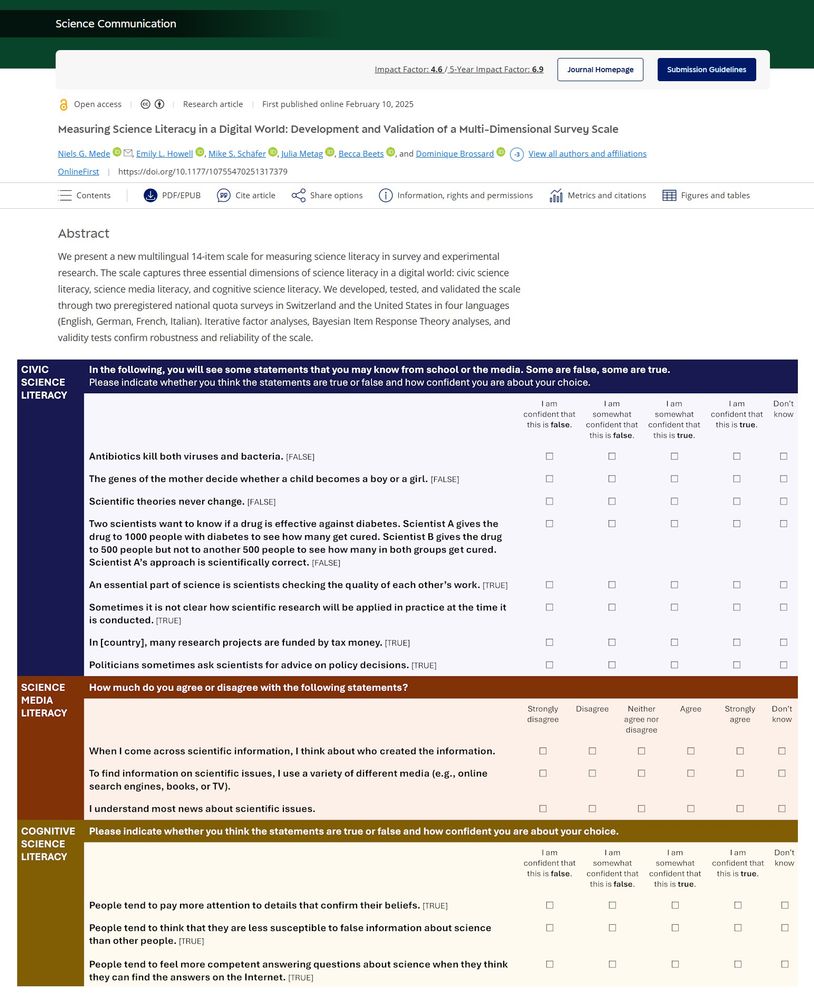
February 12, 2025 at 7:36 AM
We present: A new instrument to measure people’s science literacy. #OpenAccess in #ScienceCommunication: journals.sagepub.com/doi/full/10.... 📢
It’s a 14-item #survey scale in English, German, French and Italian covering three key dimensions of science literacy: civic, media and cognitive literacy 💡
It’s a 14-item #survey scale in English, German, French and Italian covering three key dimensions of science literacy: civic, media and cognitive literacy 💡
Reposted by Florian Wintterlin
Now publicly available: the #TISP dataset. It contains 71,922 survey responses on public perceptions of science, science communication, and climate change attitudes in 68 countries. Published in @natureportfolio.bsky.social’s #ScientificData: www.nature.com/articles/s41... 📊
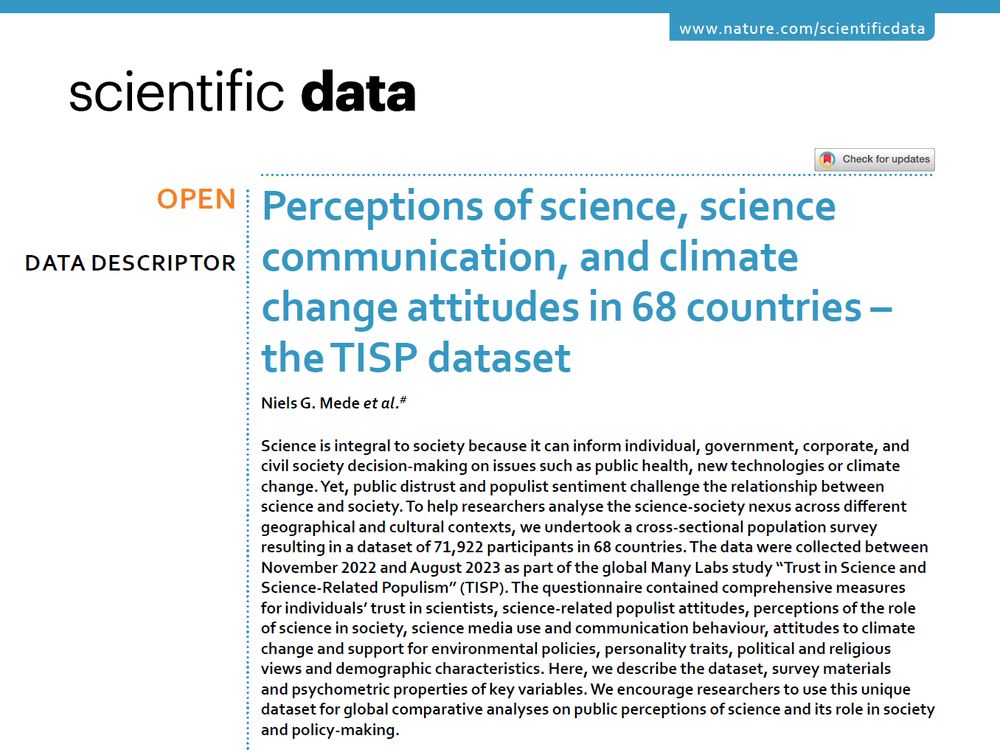
January 22, 2025 at 4:20 PM
Now publicly available: the #TISP dataset. It contains 71,922 survey responses on public perceptions of science, science communication, and climate change attitudes in 68 countries. Published in @natureportfolio.bsky.social’s #ScientificData: www.nature.com/articles/s41... 📊
Reposted by Florian Wintterlin
Out now in Nature Human Behaviour: Our 68-country #survey on public attitudes to #science 📣
It shows: People still #trust scientists and support an active role of scientists in society and policy-making. #OpenAccess available here: www.nature.com/articles/s41... @natureportfolio.bsky.social
(1/13)
It shows: People still #trust scientists and support an active role of scientists in society and policy-making. #OpenAccess available here: www.nature.com/articles/s41... @natureportfolio.bsky.social
(1/13)
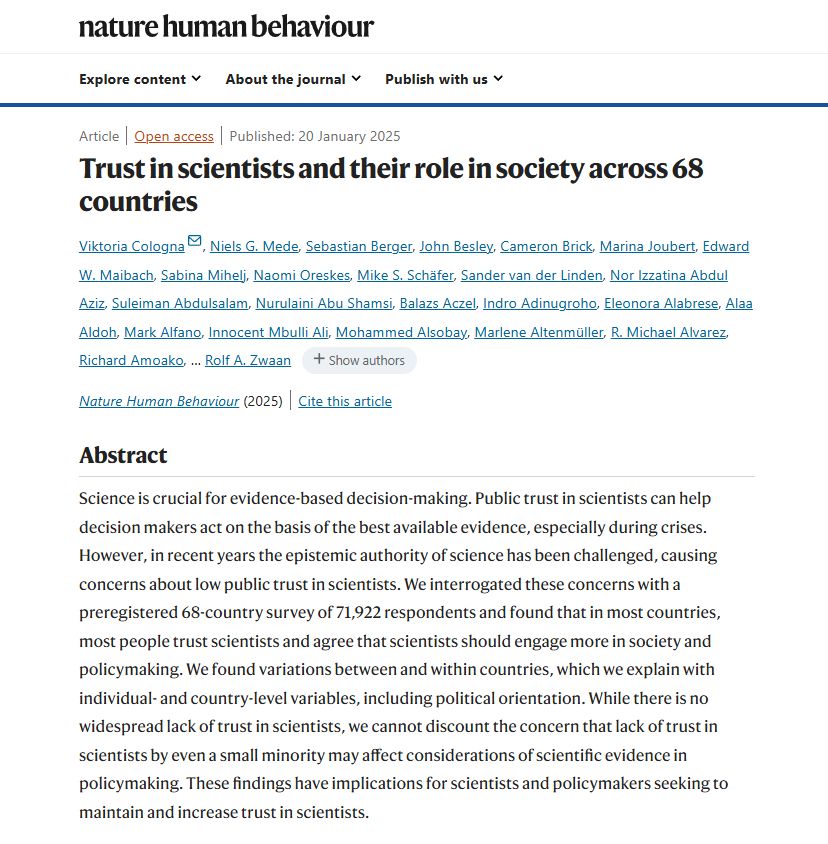
January 20, 2025 at 10:27 AM
Out now in Nature Human Behaviour: Our 68-country #survey on public attitudes to #science 📣
It shows: People still #trust scientists and support an active role of scientists in society and policy-making. #OpenAccess available here: www.nature.com/articles/s41... @natureportfolio.bsky.social
(1/13)
It shows: People still #trust scientists and support an active role of scientists in society and policy-making. #OpenAccess available here: www.nature.com/articles/s41... @natureportfolio.bsky.social
(1/13)
Reposted by Florian Wintterlin
Misinformation isn't random - it's strategic. 🧵
In the first cross-national comparative study, we examine 32M tweets from politicians.
We find that misinformation is not a general condition: it is driven by populist radical right parties.
with @julianachueri.bsky.social
doi.org/10.1177/1940...
In the first cross-national comparative study, we examine 32M tweets from politicians.
We find that misinformation is not a general condition: it is driven by populist radical right parties.
with @julianachueri.bsky.social
doi.org/10.1177/1940...
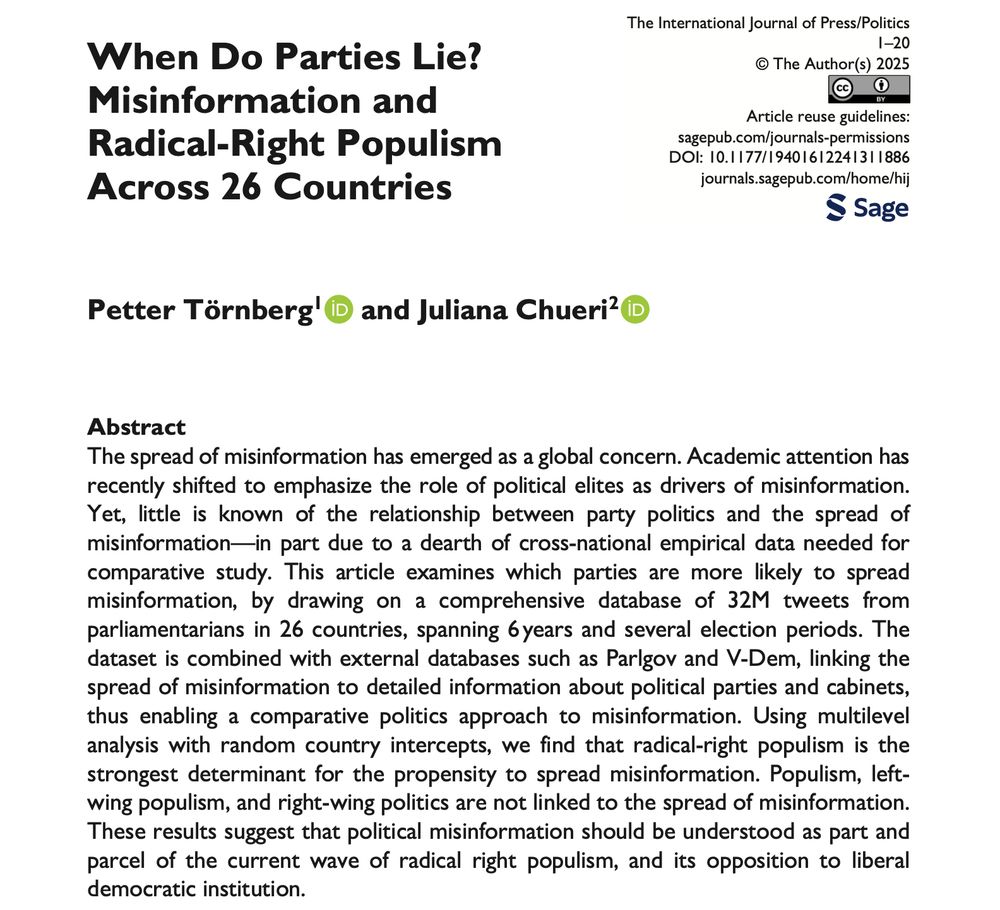
January 14, 2025 at 1:24 PM
Misinformation isn't random - it's strategic. 🧵
In the first cross-national comparative study, we examine 32M tweets from politicians.
We find that misinformation is not a general condition: it is driven by populist radical right parties.
with @julianachueri.bsky.social
doi.org/10.1177/1940...
In the first cross-national comparative study, we examine 32M tweets from politicians.
We find that misinformation is not a general condition: it is driven by populist radical right parties.
with @julianachueri.bsky.social
doi.org/10.1177/1940...
Reposted by Florian Wintterlin
Recommend two good pieces of reporting on misinformation, research on it, and debates around it that came out around the turn of the year
Laurie Clarke dismantles lazy "bad actors" framing www.politico.eu/article/nobo...
& @claradoodle.bsky.social AI deepfake panic www.ft.com/content/62d8... 1/3
Laurie Clarke dismantles lazy "bad actors" framing www.politico.eu/article/nobo...
& @claradoodle.bsky.social AI deepfake panic www.ft.com/content/62d8... 1/3

‘Nobody was tricked into voting for Trump’: Why the disinformation panic is over
Eight years ago, Trump and Brexit sparked fears social media was corroding reality. Now, that narrative is crumbling.
www.politico.eu
January 3, 2025 at 10:30 AM
Recommend two good pieces of reporting on misinformation, research on it, and debates around it that came out around the turn of the year
Laurie Clarke dismantles lazy "bad actors" framing www.politico.eu/article/nobo...
& @claradoodle.bsky.social AI deepfake panic www.ft.com/content/62d8... 1/3
Laurie Clarke dismantles lazy "bad actors" framing www.politico.eu/article/nobo...
& @claradoodle.bsky.social AI deepfake panic www.ft.com/content/62d8... 1/3
Reposted by Florian Wintterlin
This emerging hot take that misinformation was just some academic panic is mind-numbingly bad and reminiscent of attempts to frame climate science, etc… as hysteria.
www.politico.eu/article/nobo...
www.politico.eu/article/nobo...

‘Nobody was tricked into voting for Trump’: Why the disinformation panic is over
Eight years ago, Trump and Brexit sparked fears social media was corroding reality. Now, that narrative is crumbling.
www.politico.eu
January 2, 2025 at 1:01 PM
This emerging hot take that misinformation was just some academic panic is mind-numbingly bad and reminiscent of attempts to frame climate science, etc… as hysteria.
www.politico.eu/article/nobo...
www.politico.eu/article/nobo...
Reposted by Florian Wintterlin
With 17 days to go until the US takeover by the new Trump (or Musk?) administration, I thought it might be worthwhile to share a number of recent papers published by our team that counter arguments that have been leveled against misinformation research. 1/n
January 4, 2025 at 9:13 AM
With 17 days to go until the US takeover by the new Trump (or Musk?) administration, I thought it might be worthwhile to share a number of recent papers published by our team that counter arguments that have been leveled against misinformation research. 1/n
Reposted by Florian Wintterlin
Interesting new study with three-wave panel data examining the relationship between hostile media perceptions and trust in news by @wintterlin.bsky.social Gurr @juliametag.bsky.social ijoc.org/index.php/ij...



December 23, 2024 at 7:09 PM
Interesting new study with three-wave panel data examining the relationship between hostile media perceptions and trust in news by @wintterlin.bsky.social Gurr @juliametag.bsky.social ijoc.org/index.php/ij...
Reposted by Florian Wintterlin
Improving access to high-quality scientific information can fill information voids that exist for topics of interest to people and
reduce exposure to and uptake of misinformation about science. Read more in our report: nap.nationalacademies.org/27894 #scicomm #medialiteracy
reduce exposure to and uptake of misinformation about science. Read more in our report: nap.nationalacademies.org/27894 #scicomm #medialiteracy

Understanding and Addressing Misinformation About Science
Read online, download a free PDF, or order a copy in print.
nap.nationalacademies.org
December 19, 2024 at 5:08 PM
Improving access to high-quality scientific information can fill information voids that exist for topics of interest to people and
reduce exposure to and uptake of misinformation about science. Read more in our report: nap.nationalacademies.org/27894 #scicomm #medialiteracy
reduce exposure to and uptake of misinformation about science. Read more in our report: nap.nationalacademies.org/27894 #scicomm #medialiteracy
Reposted by Florian Wintterlin
New publication (4+ years in the making): “The Diffusion and Reach of (Mis)Information on Facebook”. shorturl.at/VE2fU
We analyze the propagation of 1B+ posts across content moderation regimes, with @davidlazer.bsky.social @jatucker.bsky.social @taliastroud.bsky.social @annenbergpenn.bsky.social
We analyze the propagation of 1B+ posts across content moderation regimes, with @davidlazer.bsky.social @jatucker.bsky.social @taliastroud.bsky.social @annenbergpenn.bsky.social
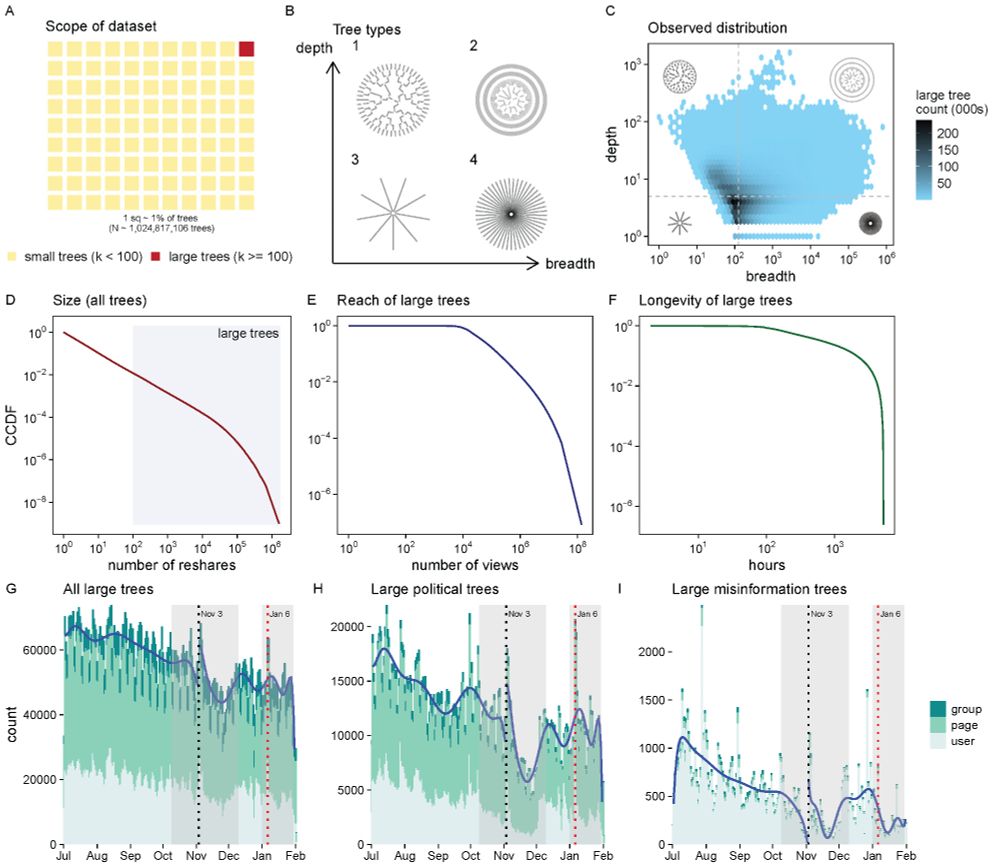
December 11, 2024 at 5:23 PM
New publication (4+ years in the making): “The Diffusion and Reach of (Mis)Information on Facebook”. shorturl.at/VE2fU
We analyze the propagation of 1B+ posts across content moderation regimes, with @davidlazer.bsky.social @jatucker.bsky.social @taliastroud.bsky.social @annenbergpenn.bsky.social
We analyze the propagation of 1B+ posts across content moderation regimes, with @davidlazer.bsky.social @jatucker.bsky.social @taliastroud.bsky.social @annenbergpenn.bsky.social
Reposted by Florian Wintterlin
Are you looking for the latest examples of AI deepfakes in the wild? We got you. #medialiteracy #factchecking lookerstudio.google.com/reporting/f8...

Generative AI - Factcheck Tracker Dashboard
Looker Studio turns your data into informative dashboards and reports that are easy to read, easy to share, and fully customizable.
lookerstudio.google.com
November 26, 2024 at 12:48 PM
Are you looking for the latest examples of AI deepfakes in the wild? We got you. #medialiteracy #factchecking lookerstudio.google.com/reporting/f8...
Reposted by Florian Wintterlin
The number of risk assessments are coming in #DSA #commsky #eusky
Check this overview ⬇️
X, Facebook, Instagram, Google, YouTube, TikTok are there
docs.google.com/spreadsheets...
Check this overview ⬇️
X, Facebook, Instagram, Google, YouTube, TikTok are there
docs.google.com/spreadsheets...
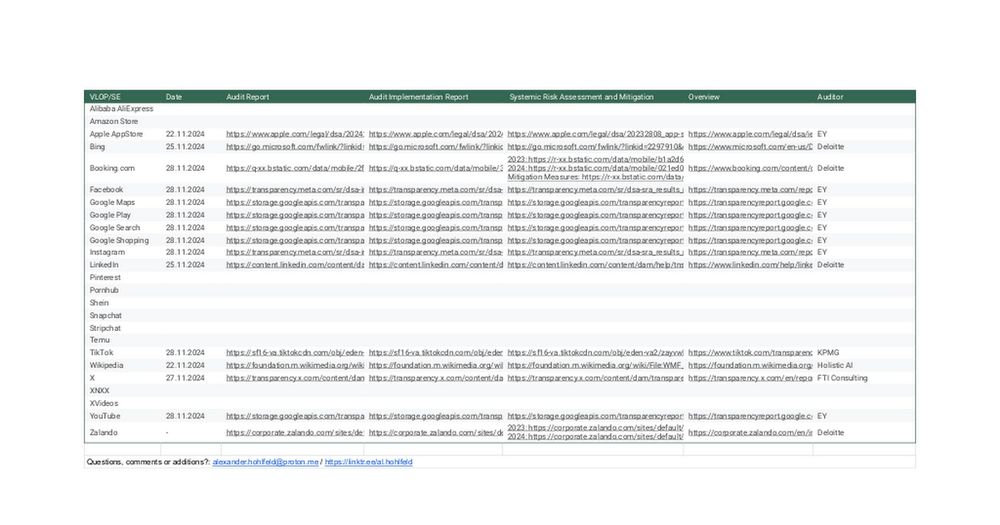
DSA: Risk Assessment & Audit Database
docs.google.com
November 28, 2024 at 5:17 PM
The number of risk assessments are coming in #DSA #commsky #eusky
Check this overview ⬇️
X, Facebook, Instagram, Google, YouTube, TikTok are there
docs.google.com/spreadsheets...
Check this overview ⬇️
X, Facebook, Instagram, Google, YouTube, TikTok are there
docs.google.com/spreadsheets...
Reposted by Florian Wintterlin
𝚝𝚒𝚗𝚢𝚝𝚊𝚋𝚕𝚎 0.6.1 for #Rstats is out!
It's an ultra simple, super flexible, and 0-dependency package to draw beautiful tables in HTML, LaTeX, Typst, Word, PDF, and PNG.
And for those who ❤️ documentation, 𝚝𝚒𝚗𝚢𝚝𝚊𝚋𝚕𝚎 ships with a billion pages of tutorials:
vincentarelbundock.github.io/tinytable/
It's an ultra simple, super flexible, and 0-dependency package to draw beautiful tables in HTML, LaTeX, Typst, Word, PDF, and PNG.
And for those who ❤️ documentation, 𝚝𝚒𝚗𝚢𝚝𝚊𝚋𝚕𝚎 ships with a billion pages of tutorials:
vincentarelbundock.github.io/tinytable/
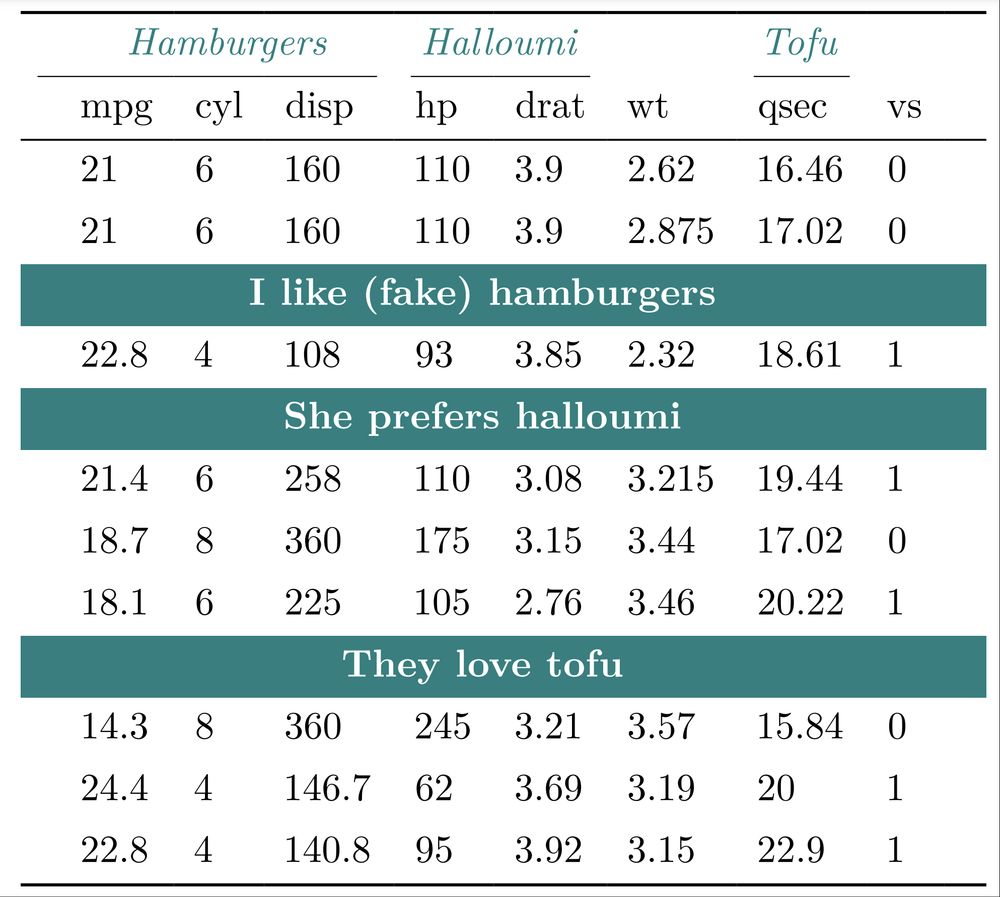
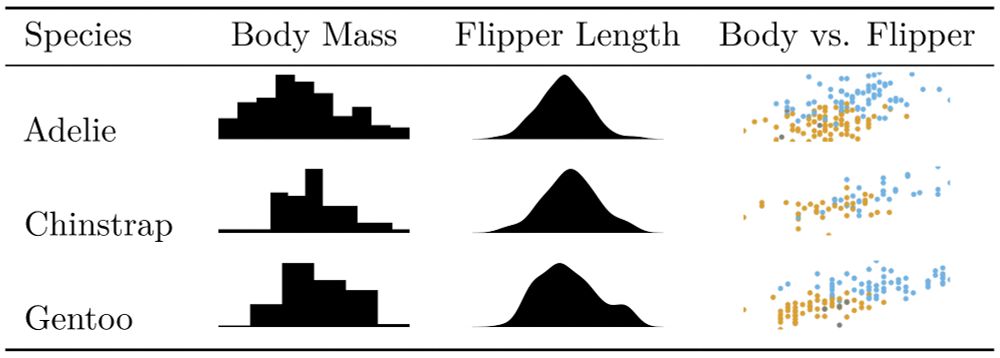
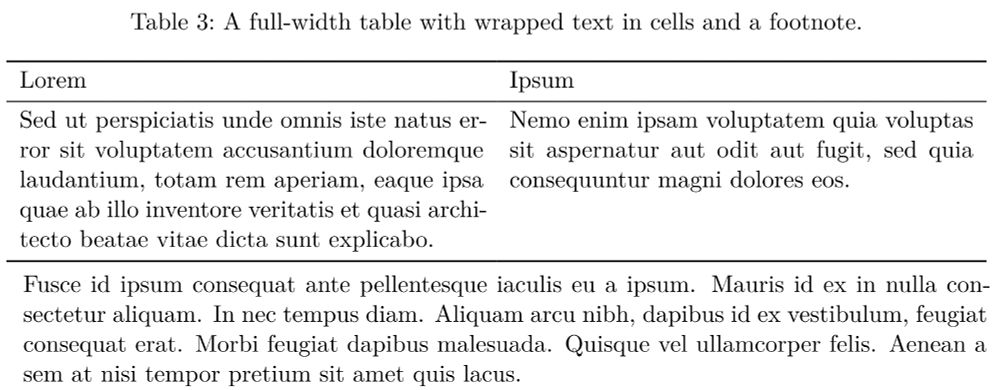
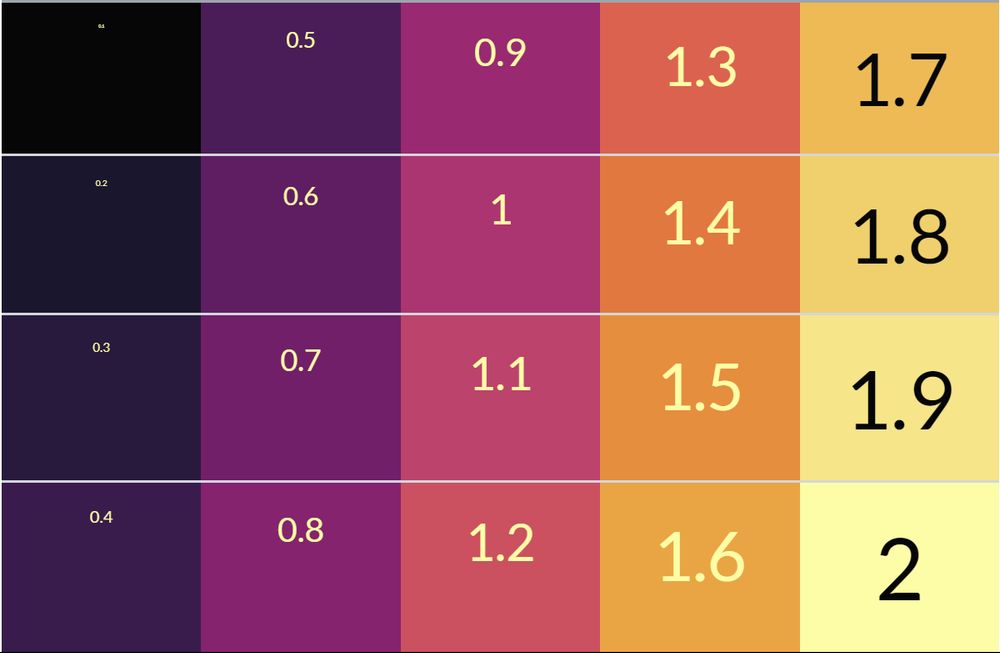
November 21, 2024 at 2:38 PM
𝚝𝚒𝚗𝚢𝚝𝚊𝚋𝚕𝚎 0.6.1 for #Rstats is out!
It's an ultra simple, super flexible, and 0-dependency package to draw beautiful tables in HTML, LaTeX, Typst, Word, PDF, and PNG.
And for those who ❤️ documentation, 𝚝𝚒𝚗𝚢𝚝𝚊𝚋𝚕𝚎 ships with a billion pages of tutorials:
vincentarelbundock.github.io/tinytable/
It's an ultra simple, super flexible, and 0-dependency package to draw beautiful tables in HTML, LaTeX, Typst, Word, PDF, and PNG.
And for those who ❤️ documentation, 𝚝𝚒𝚗𝚢𝚝𝚊𝚋𝚕𝚎 ships with a billion pages of tutorials:
vincentarelbundock.github.io/tinytable/
Reposted by Florian Wintterlin
New article in Journal of Communication looking at changes to trust in news across 46 countries in the last 10 years.
Trust in news declined in just over half of countries.
It decreased more in countries where TV news use has declined, and/or where social media news use has grown.
A thread:
Trust in news declined in just over half of countries.
It decreased more in countries where TV news use has declined, and/or where social media news use has grown.
A thread:
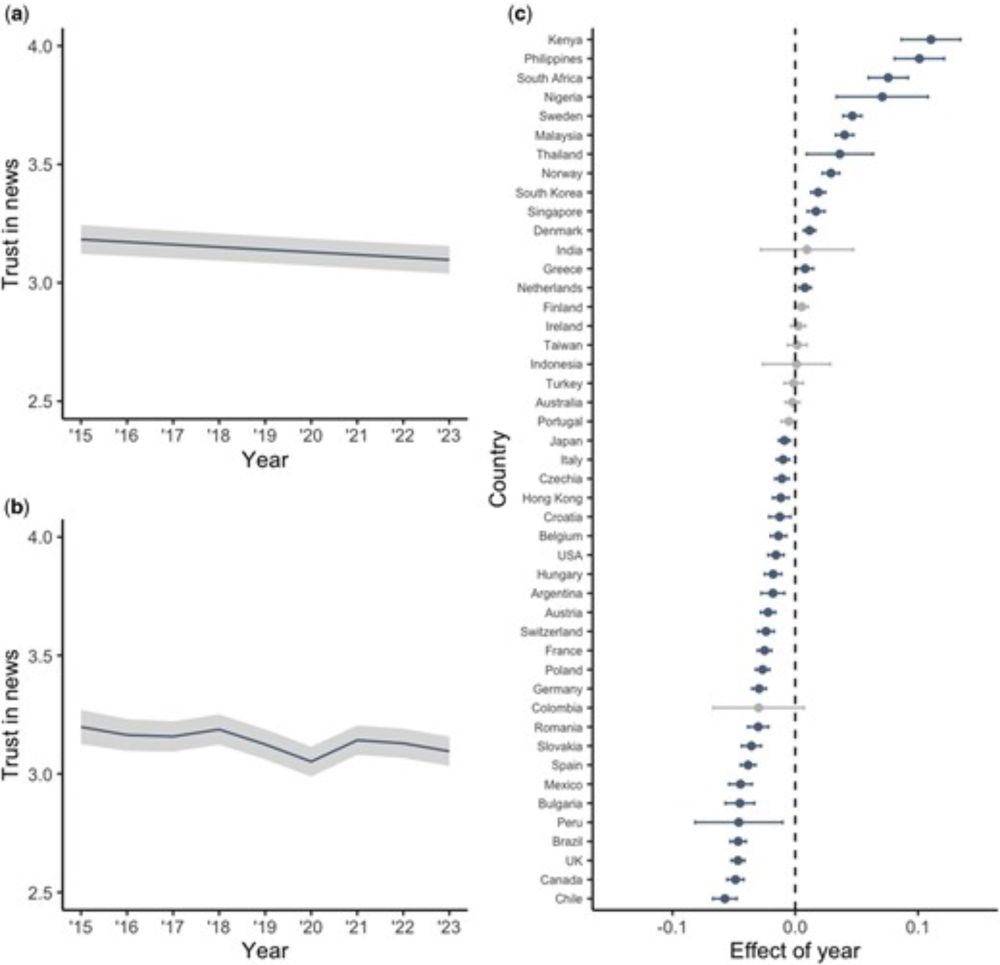
The link between changing news use and trust: longitudinal analysis of 46 countries
Abstract . Changing levels of public trust in the news are of deep concern to both researchers and practitioners. We use data from 2015 to 2023 in 46 count
academic.oup.com
November 23, 2024 at 7:50 AM
New article in Journal of Communication looking at changes to trust in news across 46 countries in the last 10 years.
Trust in news declined in just over half of countries.
It decreased more in countries where TV news use has declined, and/or where social media news use has grown.
A thread:
Trust in news declined in just over half of countries.
It decreased more in countries where TV news use has declined, and/or where social media news use has grown.
A thread:

